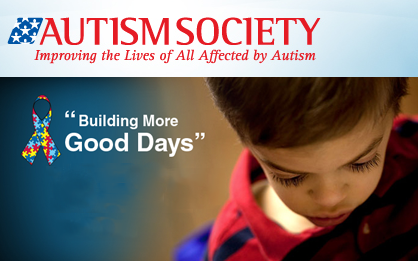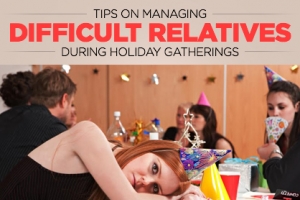Autism Society shares valuable insights on living with autism
Growing up, Amanda Glensky struggled with her brother’s autism. Back then, there was little accurate information on autism available to the public. Her family went to the library, but found diverse perspectives and walked away even more concerned. It was through the Autism Society and one of its support groups that they found the encouragement they needed and were able to tackle the issues they faced. She reports that it made all the difference in her family’s life—and in her brother’s life. Today she gives back by working at the Autism Society, the oldest and largest grassroots organization dedicated to improving the lives of those with autism.
“It gives you a great respect for other people and an understanding that you might not understand someone’s story completely and always to presume people have something to offer, and they’re not just about the way you see them behaving in public,” Glensky, now a media specialist at the Autism Society, said, it was difficult when kids would tease at school.
She is therefore wholeheartedly behind the Autism Society’s mission to understand and accept. In fact, everybody involved in the organization has been touched by autism in a different way, such as having an autistic family member or having worked with individuals with autism.
According to the Autism Society, autism is a complex developmental disability that impacts individuals’ capacity to communicate and to interact with those around them. As a spectrum disorder, it affects people in distinctive ways and to different degrees. Both a cure and a specific cause, at this point, have yet to be pinpointed.
The Autism Society’s mission is fairly broad – to improve the lives of those affected by autism – so their range of activities is likewise extensive. Involved in everything from an annual national educational conference to nights with sport teams for families affected by autism, the organization combines advocacy (with a public policy department that works on Capitol Hill) with support, research and education. All told, the nonprofit provides more than 3.7 million people a year with expert information about autism.
As autism can widely be misunderstood and because little is known about the condition, much of their work focuses on spreading awareness. “We are a credible source of information for individuals affected by autism,” Glensky said. “People can come to us and we will give them the information they need to live their best lives.”
The emotional connection is also crucial. Living with someone who has autism can be joyful, but also sometimes can be difficult. So the Autism Society provides a support system. Their support groups welcome individuals diagnosed with autism or their families to share their lives, both concerns and successes.
“When a diagnosis comes, many times, parents just don’t know where to turn,” Glensky said. “They can come to the Autism Society … we’ll give them a place to go.”
Founded in 1965 by Bernard Rimland, Ph.D., the Maryland-based nonprofit was based on families coming together with doctors and professionals, who collectively realized the need to provide information and support to families affected by autism. Today, the Autism Society brings together 120,000 members and about 200 chapters to be a voice for the autism community.
“We’re people who are affected by autism. We’re advocates of people with autism. We’re people helping people bring about positive things in the lives of others,” Glensky said.
When someone not familiar with autism sees an autistic individual in public, people judge, says Glensky. While it can be easy to pass judgment, that is what the Autism Society is fighting.
“They think the person with autism might not be a person who can contribute to society, and that’s wrong,” Glensky said. “They just have a different way of thinking about things, and they have great potential. They still have a lot to say.”
Having a family member with autism can limit the activities your family can participate in. A mother went to see a movie with her autistic son and did not have a good experience. Her child was up and moving around, and people at the theater weren’t sympathetic. She decided to propose an autism-friendly day at the movies: turn down the sound and turn up the lights. It was such a wild success that all 200 seats sold out. Since then, the Sensory Friendly Film program has grown into an official partnership with AMC Theatres and is now one of the ASAF ’s most successful programs, present in 131 locations.
“When you have autism in the family, sometimes it seems like the world ends at your front door and you can’t go out,” Glensky said of the program’s importance.
In celebration of National Autism Awareness Month this April, for more information or to get involved, visit their website at www.autism-society.org. They invite those with autism or touched by it to engage on their Facebook page, facebook.com/autismsociety.
Has autism affected your life in some way? Please share your story with us.
Tagged in: charity, nonprofit, philanthropy, organization, autism, autistic, autism society,

LadyLUX via Autism Society



